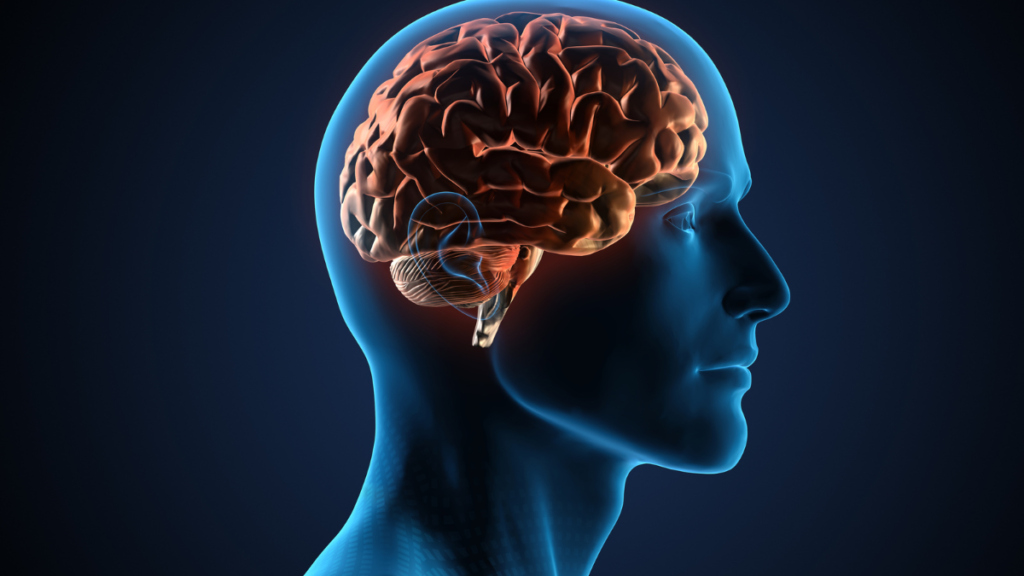This article provides an overview on 5 of the worst bad habits for your brain that can negatively affect the brain. These habits include smoking, drinking alcohol, not getting enough sleep, eating unhealthy foods, and not exercising. Each habit has been found to have a detrimental effect on cognitive functioning and mental health. Smoking, for example, is linked to memory loss and poor concentration. Alcohol consumption can lead to decreased brain function and increased risk of dementia. Not getting enough sleep affects the ability to concentrate and think clearly. Eating unhealthy foods can lead to a decrease in energy levels and impairments in decision-making skills. Finally, not exercising regularly can result in lower brain capacity due to decreased oxygen and nutrient delivery to the brain. Therefore it is important to be aware of these bad habits in order to protect your mental health and cognitive functioning. Here we have described 5 of the worst bad habits for your brain.
Bad Habit #1: Poor sleep hygiene

a. Describe how poor sleep hygiene affects the brain
Poor sleep hygiene has a significant effect on the brain. It can lead to problems with concentration, memory, and problem-solving skills. Poor sleep also increases the risk of developing depression and anxiety, as well as reducing the ability to cope with stress. Additionally, poor sleep hygiene can cause difficulty regulating mood and emotions, decreased motivation, increased irritability, and impaired judgment. Furthermore, it can lead to an increased risk of accidents due to reduced alertness and slower reaction times. As a result of poor sleep hygiene, overall cognitive performance is decreased and individuals may find it more difficult to work efficiently or remember important information. Proper sleep hygiene is essential for maintaining mental health; without adequate restful sleep our brains are unable to function properly.
b. Provide tips on how to improve sleep hygiene for better brain health
Improving your sleep hygiene is important for better brain health. Here are some tips to help you get started. Firstly, make sure you stick to a consistent sleep schedule and go to bed at the same time each night. Avoid caffeine late in the day and limit your exposure to blue light from electronic devices like phones and laptops before bedtime. Exercise during the day can also help you fall asleep faster at night as well as promoting better quality of sleep. Ensure your bedroom is comfortable and peaceful, free from any distractions or noise that might disrupt your sleep. Finally, try relaxation techniques like yoga or meditation before bedtime to help you wind down and relax into a restful sleep. Following these tips can help improve your brain health by improving your quality of sleep.
Bad Habit #2: Skimping on exercise

a. Explain why exercise can be beneficial for the brain
Exercising is a great way to keep your body healthy and alert, but did you know that it can also be beneficial for the brain? Studies have shown that regular exercise can improve memory, attention span, and concentration. It can reduce stress levels and help to ward off depression. Exercise increases oxygen flow to the brain which helps with focus and alertness, while also releasing endorphins which act as natural mood boosters. Furthermore, physical activity encourages the growth of new neurons and strengthens existing neural pathways in the brain, leading to improved cognitive functioning and better overall mental health. Exercising regularly is an effective way to keep your mind sharp and ensure optimal mental performance.
b. Suggest ways to incorporate more exercise in daily life
Exercising is one of the best things we can do to promote physical and mental health. Incorporating more exercise into our daily lives can be challenging, but there are many ways to make it easier. For starters, try to set aside at least 30 minutes a day for some form of exercise, whether it’s walking, jogging, cycling or other activities. You can also break up your exercise routine into shorter 10 minute segments throughout the day if that works better for you. When possible, take the stairs instead of an elevator or opt for a walk rather than sitting in traffic while commuting to work. Join a fitness class or find an online workout program that you can follow from home. Additionally, investing in some home gym equipment like weights or resistance bands can motivate you to stay active even when it’s raining outside. By making small changes in our everyday lives and setting realistic goals we can easily incorporate more exercise into our daily routines and reap the benefits of improved physical and mental well being.
Bad Habit #3: Unhealthy eating habits

a. Explain why unhealthy eating habits are detrimental to the brain
Unhealthy eating habits can be detrimental to the brain in many ways. Eating too much processed food and unhealthy snacks can lead to a lack of essential nutrients needed for the proper functioning of the brain. This can cause poor concentration and memory, difficulty with problem solving, impaired decision making, and fatigue. Additionally, eating a diet high in trans fats, sugar, sodium, and saturated fat can increase inflammation in the body which has been linked to cognitive decline. Poor nutrition may also be associated with an increased risk of dementia and other degenerative diseases of the brain. Unhealthy eating habits should therefore be avoided in order to maintain optimal brain health.
b. Offer suggestions for healthier options that can help improve brain health
Eating unhealthy food has a huge impact on our brain health. Unhealthy eating habits such as consuming processed and fried foods, sugary beverages, and high-calorie snacks can lead to an increase in inflammation and oxidative stress in the brain, which can cause mental fatigue and impair cognitive functioning. To improve brain health, it is important to focus on creating healthy eating habits. Some suggestions for healthier options include adding more fruits and vegetables to your diet, swapping out refined grains with whole grains, replacing unhealthy fats with healthy fats such as olive oil or nuts, cutting back on added sugars, drinking plenty of water throughout the day, and limiting alcohol consumption. Incorporating these dietary changes into your lifestyle can help boost long-term brain health.
Bad Habit #4: Excessive alcohol consumption for our brain

Excessive alcohol consumption can have a significant impact on our brain. It can impair the way we think, our memory and even our ability to reason. Over time, excessive drinking can lead to permanent damage of brain tissue as well as an increased risk of developing dementia. Long-term effects also include shrinkage of the hippocampus which is responsible for forming memories, decreased activity in the prefrontal cortex which is involved in decision making and judgment, and changes in the neurotransmitters that are responsible for sending messages throughout the brain. Additionally, excessive alcohol consumption can increase the risk of stroke and other serious health problems like liver disease. Therefore, it is important to avoid excessive drinking and maintain a healthy lifestyle.
a. Discuss how excessive alcohol consumption can lead to cognitive decline and memory loss
Excessive alcohol consumption can have serious long-term effects on cognitive abilities and memory. Research shows that people who drink heavily are at greater risk of developing dementia and Alzheimer’s disease, as well as other forms of cognitive impairment. Alcohol also has a direct effect on the hippocampus, the part of the brain responsible for memory formation and recall. Studies have found that heavy drinking can cause neurons in the hippocampus to become damaged, leading to difficulty forming new memories and recalling old ones. Additionally, alcohol is known to reduce grey matter in this region of the brain, further affecting cognitive abilities like problem solving and decision making. Ultimately, excessive alcohol consumption can lead to cognitive decline and memory loss over time.
Bad Habit #5: Not challenging your mind enough

a. Discuss why it is important to challenge your mind with new activities and puzzles
It is essential to challenge your mind with new activities and puzzles. This helps to increase mental agility, sharpness, and flexibility. It can also help to develop problem-solving skills, as well as improve memory and concentration. Challenging the mind with puzzles and activities encourages creativity, as it gives us a chance to think outside the box and come up with unique solutions. These activities can also help build self-confidence, as they provide an opportunity to test our abilities and push ourselves further than before. Additionally, engaging in new activities can help reduce stress levels, which is beneficial for overall physical and mental health. Finally, it’s important to challenge your mind because it helps keep the brain active by stimulating neural pathways which can prevent cognitive decline.























